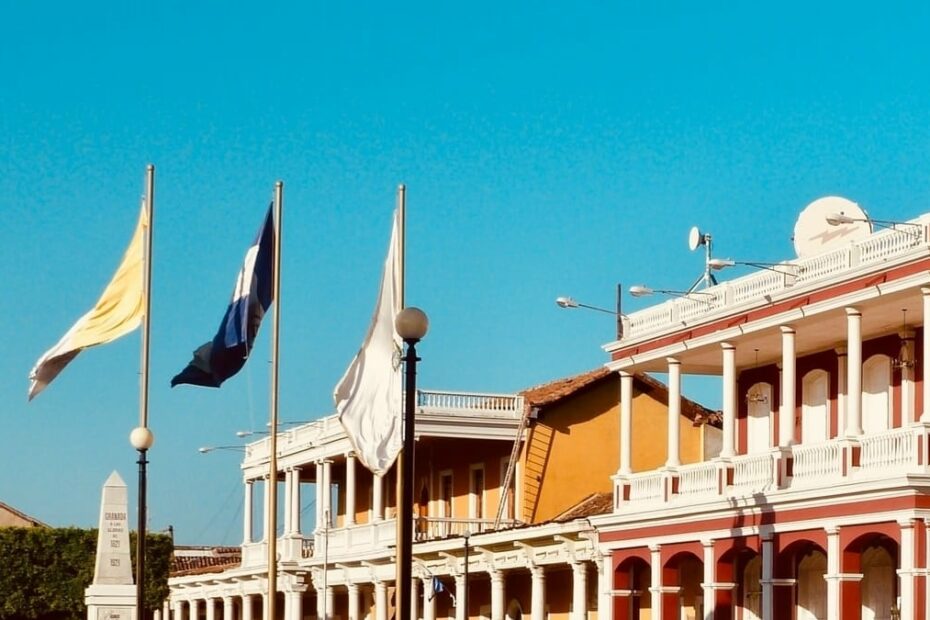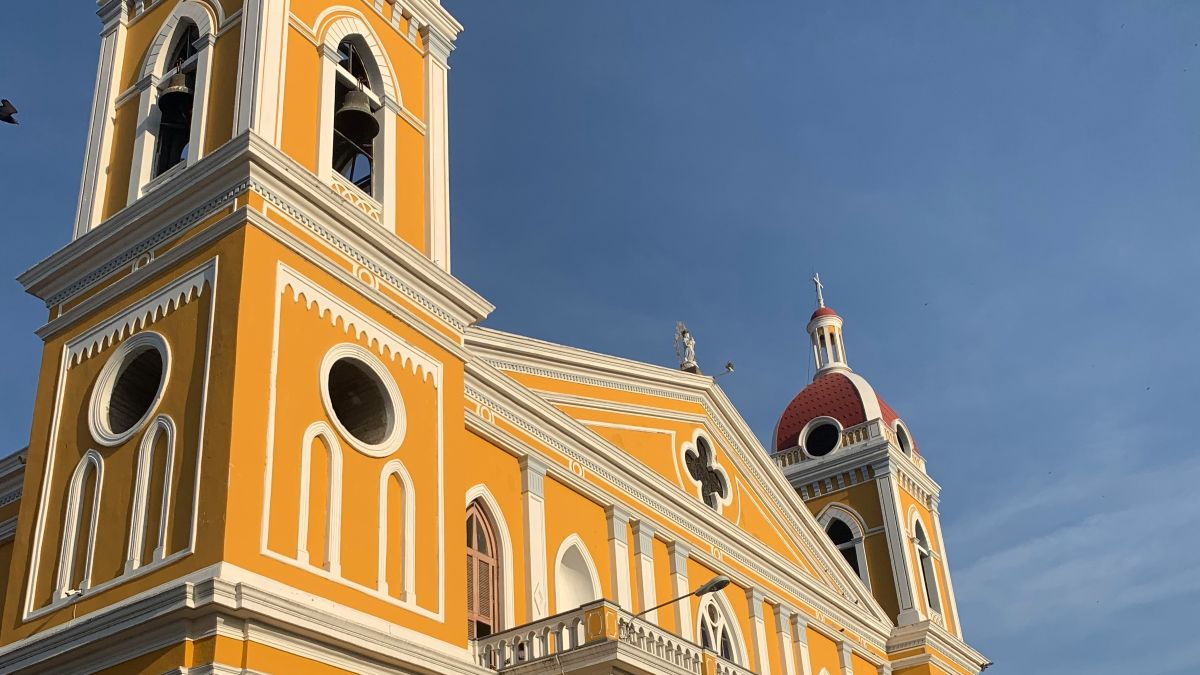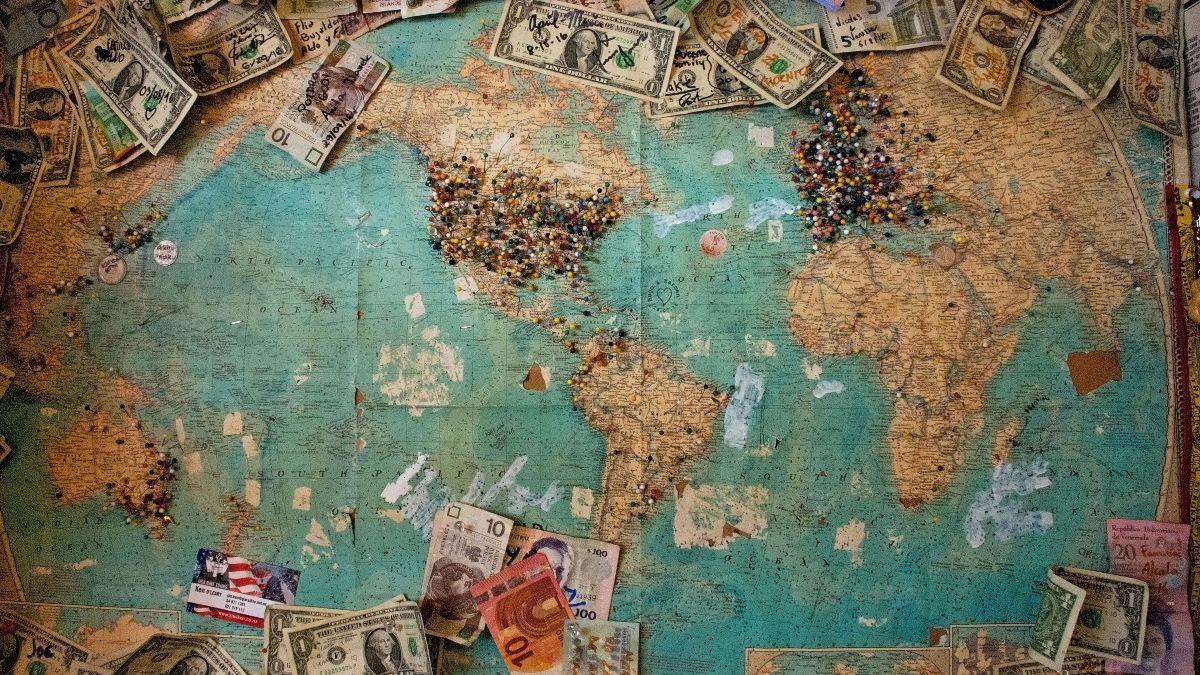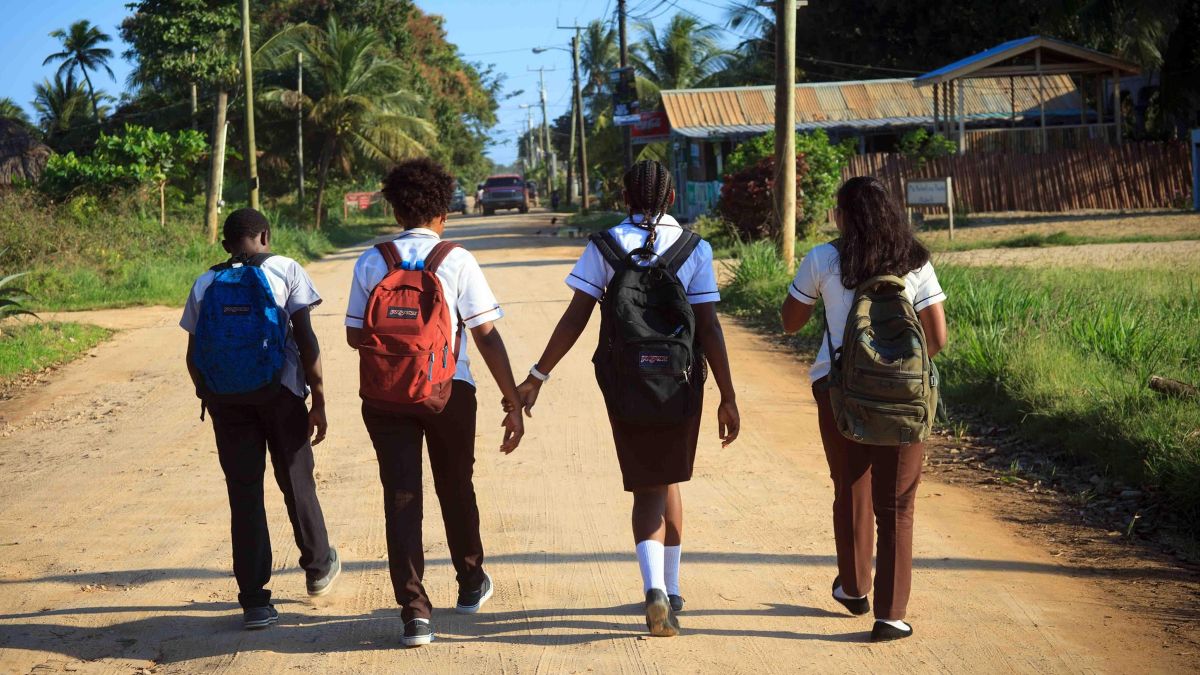We offer a quick reminder here to anyone reading about the “Nicaragua elections” taking place today, to remember that they’re nothing but a sham.
2021 has been a year of elections in Central America. Back in January, we pledged to write about them all, given the turbulence the region had experienced in 2020. So we opined on El Salvador’s legislative elections in February and Belize‘s municipal elections in March. At the end of this month, there’s a general election in Honduras, and we even eked out 2021 to include the first bit of 2022, when Costa Rica goes to the polls.
And then there’s today. November 7, election day in Nicaragua. We use the word “election” in its loosest possible terms. After all, most of the opposition running against the Ortega dictatorship are in jail or in exile.
In our January article about the 2021 elections around the region, this is what we said about Nicaragua:
“There’s not a great deal to say about Nicaragua’s general election other than that it won’t be fair. It’s laughable to even include Nicaragua in this list.
“Dictator Daniel Ortega, in power since since 2007, and now running a de facto police state where dissent is banned, has worked hard to ensure there’s no opposition to face him on November 7.
“The only question about this election will be one of turnout.“
And this was before he began arresting all the credible opposition candidates, jailing them, and replacing them with compliant straw men.
🇳🇮 Nicaragua still jails opposition candidates ahead of fake elections.
🇳🇮 Nicaragua sits on the U.N. committee overseeing human rights NGOs.
We support @BertaValle‘s struggle to free her husband @Maradiaga.#LibertadParaLosPresosPoliticos#SOSNicaragua https://t.co/AMfIFhfirZ
— UN Watch (@UNWatch) November 2, 2021
It’s been a while since we wrote an opinion piece on Nicaragua.
We wrote a ton of them in 2018 during the Ortega/Murillo murder spree that ended up decimating the country’s economy, reputation, and social structure.
Articles with names like The Ethics of Traveling to Nicaragua and Daniel Ortega: Do You Look in the Mirror and See Somoza? Long story short, we hate the Ortega regime and we support of the #SOSNicaragua movement.
As the dictatorship in Nicaragua prepares to hold an “election” this weekend, we revisit this 2018 article. Nothing has changed, after all. In fact, it’s gotten worse. And we still wonder if Ortega sees Somoza when he looks in the mirror. #sosnicaraguahttps://t.co/F5O6jtWSxF
— CentralAmericaLiving (@VidaAmerica) November 5, 2021
But since the heady days of 2018, we’ve also calmed down, given Nicaragua a break, the benefit of the doubt.
Sure, we’ve been critical. We noted Nicaragua’s terrible response to the Covid pandemic. We called out its disastrous reaction to last year’s deadly hurricanes. And we drew attention to its ludicrous approach to allowing flights back in.
But overall, we chilled a bit on all things Nicaragua. We even published an article in June called Why it’s Time to Travel to Nicaragua Again.
We’ll admit that article provided some legitimate and well-deserved pushback from our readers.
It outraged many that anyone could recommend traveling to Nicaragua while Ortega was jailing his political opponents. Understandably so.
If you jail all your opponents you don’t have to worry about presidential debates… no campaigning, no speeches… you don’t even need a campaign platform to run on. No ideas? No problem!
Finaliza campaña electoral en Nicaragua sin ningún acto de campaña https://t.co/VOFJMAtzqc
— Tin Royer (@nicadispatch) November 2, 2021
“I don’t want to be rude, but this article is entirely off base from reality,” said one reader.
“Ortega is literally arresting his political opponents as we speak. The article mentions briefly the issue of money going to his regime, but doesn’t speak to the reality of it at all – the reality of your money burning down homes with children in them, disappearing families of political activists, and the fact that as a traveler in that country you have zero human rights.
“My favorite place on earth is Nicaragua, and I was in the process of moving there 3 years ago before Ortega started killing people. Now is 100% not the time to return, with the embers are aflame once again. I’m incredibly disappointed in this article despite my love for the country.”
In the Why it’s Time to Travel to Nicaragua Again article, the writer offered a few reasons why you should, well, travel to Nicaragua again. She talked about the beaches, the surf, and all the good stuff to love about the Land of Lakes and Volcanoes.
She also talked about how traveling to Nicaragua as a tourist helps the people financially. It’s an argument I have some personal sympathy with.
In September 2018, I voiced that sympathy, saying, “I worked in Nicaraguan tourism for a long time, so I have sympathy for the jobs lost and the hotels closed. I get the argument that states you should go to Nicaragua to support the people, not the government.”
A look at the ethics of traveling to Nicaragua at this time.https://t.co/7CYMf4S9R1#Nicaragua #SOSNicaragua
— CentralAmericaLiving (@VidaAmerica) September 13, 2018
I still stand by that, although, as I also said at the time… only to a degree.
My real feeling is that traveling to Nicaragua is no different to traveling to Apartheid-era South Africa – unacceptable. Going there only feeds credibility to the venal Ortega regime, plus helps fill its coffers with money to suppress its people.
“You might not realize you’re financing Ortega by staying in hostels and eating in local restaurants, but you are. You’re financing Ortega the moment you pay your entry tax at the airport or the border,” I said back then.
But we published the article because we want to cover all schools of thought about Nicaragua and travel to Nicaragua, including the tourist/expat experience. Unlike Ortega, we’re democratic here and open to all opinions, even those we disagree with.
But now, on “election” day, it’s time to look at the real Nicaragua and remember that the eloquent, outraged reader quoted above is correct.
👉🏿Q&A: Bianca Jagger
The human rights campaigner says Nicaragua’s general election is a farce and is calling on the international community to declare it illegitimate
THE WORLD TODAY
5 NOVEMBER 2021 Chatham House – International Affairs Think Tank https://t.co/LykzQtCfVn— Bianca Jagger Nicaraguense por gracia de Dios 🇳🇮 (@BiancaJagger) November 6, 2021
The Nicaragua elections taking place today are a farce, a pretense at any semblance of democracy.
There’s been no democracy for a long time in Nicaragua, for many years. The last resemblance of freedom died in 2018, on the streets of Masaya and the torture chambers of El Chipote prison. Since then, Nicaragua has been a failed state with a terrorist government.
Please remember this, as you start reading the victory tweets and social media posts later today. Remember this as you read sycophantic congratulations from deluded leftists around the world, who live in first world comfort and always hail Ortega as some kind of freedom fighter against “the empire”.
It’s worth taking a look at what Freedom House, an NGO measuring the development (or lack of) human rights, freedom, and democracy around the world says about Nicaragua in its Global Freedom Scores for 2021.
Freedom House looks at over 200 countries around the world, and rates them with a score between 1 and 100, depending on how free they are. On how many individual rights and civil liberties people have, from freedom of expression to the right to vote, and equality before the law. The least tyrannical a country is, the higher their score.
Nicaragua: Freedom in the World 2021 Country Report | Freedom House https://t.co/4JkwvkeCkB
— raymundo garay (@pibevigil7) November 4, 2021
Nicaragua has by far the lowest score in Central America (30/100), an emphatic Not Free.
Here’s part of what Freedom House has to say about Nicaragua:
“The election of Sandinista leader Daniel Ortega in 2006 began a period of democratic deterioration marked by the consolidation of all branches of government under his party’s control, the limitation of fundamental freedoms, and unchecked corruption in government. In 2018, state forces, with the aid of informally allied armed groups, responded to a mass antigovernment movement with violence and repression. The rule of law collapsed as the government moved to put down the movement, with rights monitors reporting the deaths of at least 325 people, extrajudicial detentions, disappearances, and torture. Arbitrary arrests and detentions have since continued, perceived government opponents report surveillance and monitoring, and talks with the opposition have floundered.”
Freedom House has also called on the Ortega regime to release all 149 political prisoners in Nicaragua. Counted among the 149 are presidential candidates Noel Vidaurre, Medardo Mairena, Cristiana Chamorro, Arturo Cruz, Felix Maradiaga, Juan Sebastian Chamorro, and Miguel Mora.
Except for Cristiana Chamorro and Noel Vidaurre, who are under house arrest, the other five candidates are rotting in jail. All seven are charged with various degrees of Nicaragua’s ludicrous treason laws brought in after the 2018 protests.
Today marks 100 days since @NoelVidaurre was arbitrarily detained by the Ortega Murillo regime in Nicaragua. Freedom House calls on the regime to immediately release Mr. Vidaurre — and all 149 political prisoners — and allow for free and fair elections.
— Freedom House (@freedomhouse) November 1, 2021
These arrests, plus the exile of other politicians and opposition figures have at least brought the plight of Nicaragua to the world’s attention.
The European Union and the United States have called today’s elections a sham, and called out Ortega as a dictator. Last month, Presidents Alvarado of Costa Rica and Cortizo of Panama united to denounce the regime, and call for the release of political prisoners.
“We expect the restoration of democracy in Nicaragua,” said Alvarado.
At the United Nations General Assembly in September, Alvarado was the only world leader to call out Nicaragua. He used the event to express deep concern “about the imprisonment of political opponents, journalists and students.”
He went on to call for the return of democratic institutions, the respect and promotion of human rights, and freedom of expression “in that brother country.”
El presidente de Costa Rica, Carlos Alvarado, expresa en la ONU su “profunda preocupación“ por Nicaragua, por la detención de opositores políticos, periodistas y estudiantes nicaragüenses https://t.co/DS3TO43vN9
— Carlos F Chamorro (@cefeche) September 23, 2021
Alvarado won’t see any of that today, though.
Today, he’ll see Central America’s most evil regime crowing about its victory and its mandate to rule for the next five years, ten years, whatever.
And we want you to see it, too, and remember what a fraud this whole thing is when you’re reading it later. We want you to know how people are urging others to vote today, not to insult their own intelligence by participating in this sham. It’s not for nothing that the hashtags #QuedateEnCasa, #NicaraguaNoVota, and #YoNoBotoMiVoto are trending all over Twitter this weekend.
If you’re reading this article elsewhere in Central America, you have every right to feel dissatisfied with your leaders. But remember to feel grateful you’re not in Nicaragua, and to know that your country is far better off, no matter how it may feel right now.
People around the region – in Costa Rica or Belize or Panama or elsewhere – complaining about “dictatorship”, should put things into perspective and come together to support their fellow Central Americans in Nicaragua today, more than any other day.
This is why @TifaniRoberts warned independent journalists to seek refuge, today, sandinista police raided home of journalist in Granada and stole his equipment. #SOSNicaragua #NicaraguaNoVota https://t.co/mFduxNIHOs
— #VandalicoGolpista (@NICACAJUN) November 6, 2021
James Dyde is the editor of centralamerica.com. He lives in Escazu, Costa Rica.




